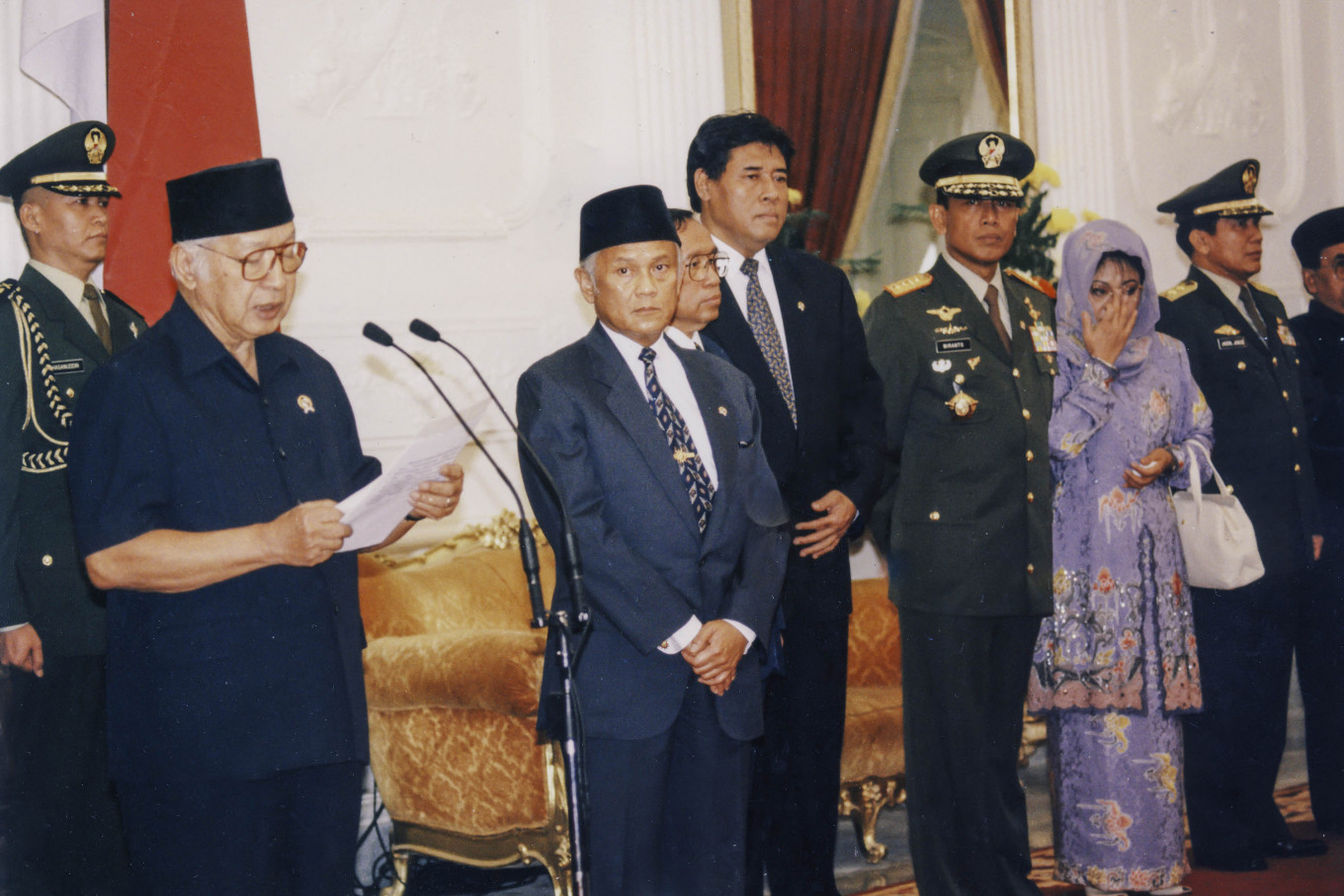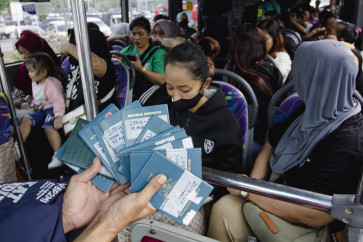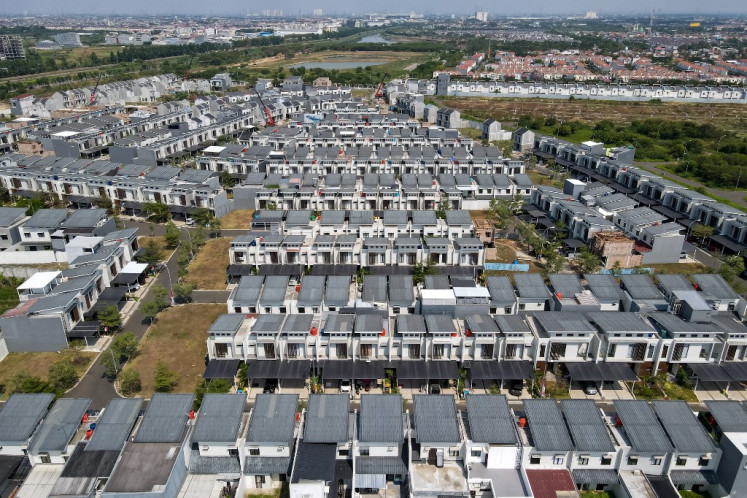Popular Reads
Top Results
Can't find what you're looking for?
View all search resultsPopular Reads
Top Results
Can't find what you're looking for?
View all search results24 years ago, Soeharto resigned. He remains a parrot’s president
The New Order regime is over, but these days we are facing the possibility of a much subtler form of dictator.
Change text size
Gift Premium Articles
to Anyone

T
oday, Indonesia commemorates the 24th anniversary of the beginning of the nation’s transition from dictatorship to democracy, after being ruled by Soeharto for 32 years and Sukarno for 21 years prior.
Our nation prides itself on being the world’s third-largest democracy, after India and the United States. But now we should be ready to fight the possible emergence of another Soeharto or Sukarno. Some of those in power are playing with fire by advocating for a third term for President Joko “Jokowi” Widodo, who is constitutionally obligated to leave office on Oct. 21, 2024.
Twenty-four years ago on this day, Soeharto stepped down following nationwide demonstrations demanding his resignation.
A few months earlier, on March 10, 1998, Soeharto, the “father of development”, had been sworn in as president for his seventh term. But in a quick and telling reversal, the same people who unanimously reelected him joined the “people power” student demonstrations to oust him.
“It is lonely at the top,” Soeharto told his “golden boy” BJ Habibie when he appointed the technology czar as his vice president in March 1998.
Later, however, Soeharto qualified his comment to Habibie: “but it is even more lonely at the bottom”. The fall of the “father of development” occurred as the country was feeling the pinch of Asian financial crisis.
I was among the eyewitnesses when Soeharto announced his decision to “quit” at Merdeka Palace. Then-vice president Habibie was sworn in as Indonesia’s third president. He had turned down Soeharto’s request to “quit” together.
Just minutes after losing power, Soeharto had to endure “painful solitude” until his death on Jan. 27, 2008. Just after the transfer of power, the presidential detail (Paspampres) shifted its attention to the new president.
Soeharto was accompanied only by his eldest daughter Siti “Tutut” Hardidyanti Rukmana when he left Merdeka Palace for his private residence on Jl. Cendana in Menteng, Central Jakarta. There would be no more motorcades escorting him.
It was also a shocking day for Soeharto’s driver, who had never stopped at a traffic light, even when it was red, and had only pushed the brake when the presidential car had arrived at its final destination. The driver, like Soeharto, had known no traffic jam until that historic day for the Indonesian people.
Just 18 days after he left office, Soeharto celebrated his 77th birthday. On that day, I wrote in The Jakarta Post that it was the first time the then-200 million people of Indonesia did not greet him with “Happy birthday Bapak President”. He was no longer the president. But he still had consolation in the form of his parrot, which had been trained to greet Soeharto as president.
The parrot’s cage stood near the living room. Whenever the bird saw Soeharto, it called out, “Selamat pagi Bapak Presiden” (good morning, Mr. President). I saw the bird a few times because journalists often covered Soeharto’s activities at his residence. According to his former aides, Soeharto smiled every time the parrot greeted him.
The bird, however, later died of a stroke – perhaps, some jested, after realizing that it was wrong in calling Soeharto president. The parrot became an in-joke among Habibie’s military aides.
Gone is the New Order. But these days we are facing the possibility of a much subtler form of dictator. President Jokowi has vowed that he will abide by the Constitution and will not seek a third term as some members of his power-hungry inner circle wish. But the danger of a return to dictatorship remains – knowing the power of political and financial interests.
Those who insisted that the nation would vanish without Soeharto were among the first to shout for his removal. I hope that Jokowi will learn from Soeharto, who would have been remembered as a great leader had he left the stage at the peak of his popularity.
One of Soeharto’s most loyal men, House of Representatives speaker Harmoko, openly demanded that the president resign on May 18, 1998. This was to save his own skin, as the legislature had been occupied by thousands of student protesters. On May 20, 14 of Soeharto’s cabinet ministers announced their resignation at once, including Ginandjar Kartasasmita, the father of current Industry Minister Agus Gumiwang Kartasasmita, and Hartarto, the father of Coordinating Economic Minister Airlangga Hartarto.
Soeharto’s political dynasty will never be revived. In this regard, Filipinos are much more forgiving than Indonesians in treating their former first family. Philippine dictator Ferdinand Marcos and his family fled to the United States following the “people power” revolution in 1986. But a few years later, after Marcos died in Hawaii, the family returned home and reentered politics. Former first lady Imelda, who was known for her collection of thousands of luxury shoes, became a senator for four terms. Now, Marcos’ son Ferdinand “Bongbong” Marcos Jr. has won the presidential election and will take office later this month.
Soeharto’s offspring look unlikely to emulate the Marcoses. They set up the Berkarya Party, but it was unable to pass the electoral threshold in the 2019 elections. Some Indonesians may miss the Soeharto era, but it is a romanticized nostalgia.
Despite many shortcomings, Indonesia has maintained democratic practices. People have the right to directly elect their president, governors, mayors and regents. The nation should stick to that, no matter what.
The nation ended Soeharto’s dictatorship 24 years ago. We should not let certain groups bring us back to the era of Soeharto or Sukarno.
Soeharto’s parrot did what it was trained to do and, so some say, died after it realized its blunder. We are not parrots.
***
The writer is a senior editor at The Jakarta Post.









